🎬 The Godfather (1972)
- vansinh
- October 27, 2024
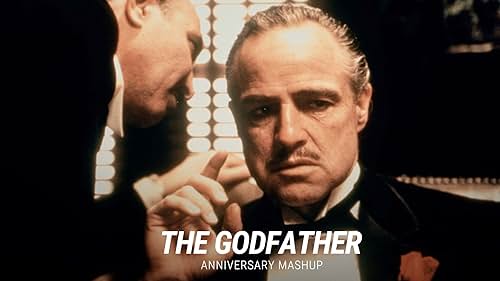
🎬 The Godfather (1972): A Masterpiece of Crime and Family Loyalty
The Godfather, directed by Francis Ford Coppola, is an iconic crime film that explores the intricacies of the Corleone family, one of the most powerful Mafia families in post-war America. The film, based on Mario Puzo’s novel, is a profound meditation on power, loyalty, and the American Dream, chronicling the rise of Michael Corleone (Al Pacino) as he becomes deeply entrenched in the family’s criminal empire. 🏙️🔫
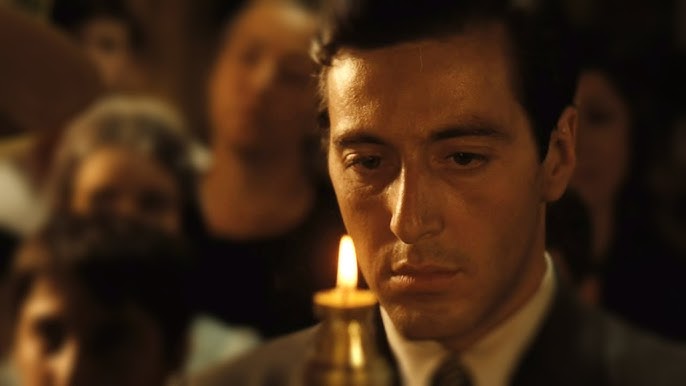
The narrative begins with the wedding of Michael’s sister, Connie (Talia Shire), where we are introduced to the patriarch, Vito Corleone (Marlon Brando), a shrewd and respected crime boss who operates within the shadows of legitimate society. The opening scene sets the tone for the film, showcasing the family’s influence and the intertwining of personal and criminal relationships. As the story unfolds, we witness the delicate balance of power and the harsh realities of loyalty in the world of organized crime. 🎩🍷
The film’s central theme revolves around the conflict between family loyalty and the violent nature of their business. Michael, initially portrayed as an outsider who wishes to distance himself from the family’s criminal dealings, is gradually drawn into the dark world of the Mafia following an assassination attempt on his father. This pivotal moment marks the beginning of Michael’s transformation from a reluctant heir to a ruthless leader, as he takes measures to protect his family and assert his control over the empire. ⚖️💼
Coppola masterfully weaves together multiple narratives, showcasing the complexities of the characters and their relationships. The film’s ensemble cast delivers exceptional performances, with Brando’s portrayal of Vito Corleone becoming legendary. His commanding presence and nuanced portrayal of a man who balances compassion with ruthlessness create a compelling and multifaceted character. Pacino’s evolution as Michael is equally captivating; his transformation from a hopeful war hero to a calculating crime boss is executed with remarkable depth and intensity. 🎭🌟
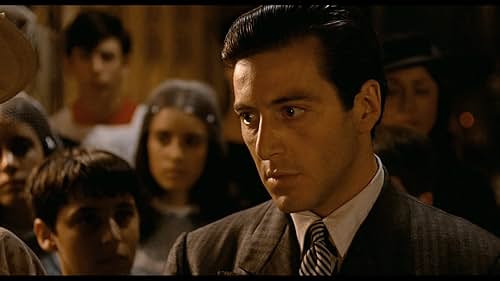 Visually, The Godfather is a masterpiece, utilizing rich cinematography by Gordon Willis to create a dark and atmospheric tone. The film’s iconic imagery, from the somber hues of the Corleone estate to the striking contrasts of light and shadow, enhances the narrative’s tension and emotional weight. The haunting score by Nino Rota further amplifies the film’s themes, becoming synonymous with the legacy of the story. 🎶🖤
Visually, The Godfather is a masterpiece, utilizing rich cinematography by Gordon Willis to create a dark and atmospheric tone. The film’s iconic imagery, from the somber hues of the Corleone estate to the striking contrasts of light and shadow, enhances the narrative’s tension and emotional weight. The haunting score by Nino Rota further amplifies the film’s themes, becoming synonymous with the legacy of the story. 🎶🖤
As Michael consolidates power, the film delves into the moral dilemmas faced by the characters. The brutality of the Mafia world is juxtaposed with moments of familial tenderness, highlighting the complexities of love and loyalty. The Godfather challenges the audience to consider the cost of power and the sacrifices made in the name of family. With unforgettable scenes, such as the “baptism of fire” sequence that juxtaposes a church baptism with a violent mob retaliation, the film leaves a lasting impact on viewers. ⚔️⛪
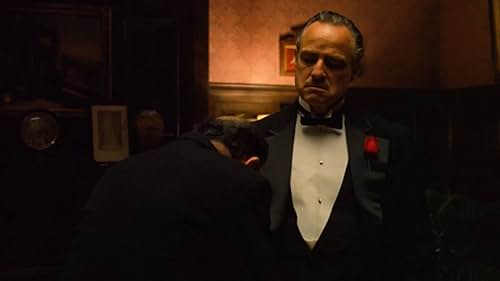 The Godfather received widespread critical acclaim, winning three Academy Awards, including Best Picture, and is often regarded as one of the greatest films in cinematic history. Its influence on the genre and popular culture is undeniable, with memorable quotes and scenes that have become iconic. The film’s exploration of themes like power, loyalty, and the duality of human nature continues to resonate with audiences, ensuring its place in the pantheon of great cinema. 🏆🎥
The Godfather received widespread critical acclaim, winning three Academy Awards, including Best Picture, and is often regarded as one of the greatest films in cinematic history. Its influence on the genre and popular culture is undeniable, with memorable quotes and scenes that have become iconic. The film’s exploration of themes like power, loyalty, and the duality of human nature continues to resonate with audiences, ensuring its place in the pantheon of great cinema. 🏆🎥
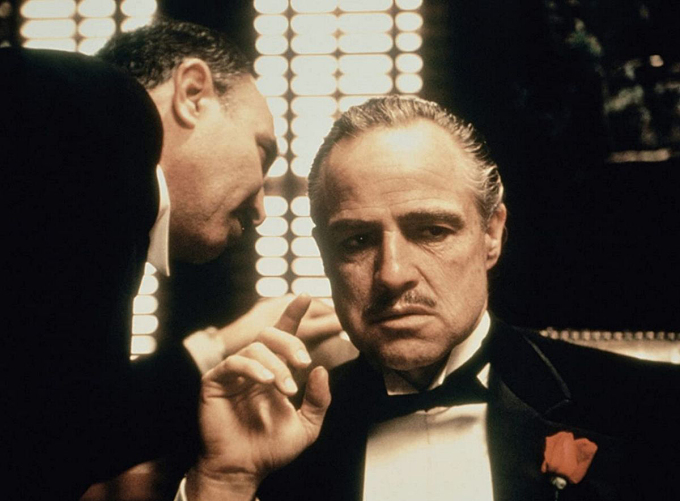
In conclusion, The Godfather is a timeless classic that transcends its genre, offering a profound exploration of family, power, and the moral complexities of life within the criminal underworld. With its masterful storytelling, unforgettable performances, and stunning visuals, it stands as a monumental achievement in filmmaking, captivating audiences for generations. The legacy of Vito Corleone and the Corleone family endures, making it an essential watch for any film enthusiast. 🌌🎬











